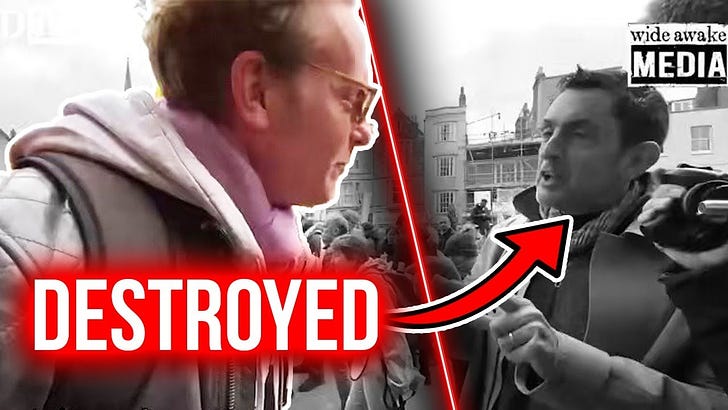Fake freedom: transport
Freedom is not simply a matter of personal choice.
Let’s take freedom of movement for example. Here is the unperson Laurence Fox being interviewed by the BBC at the 18 February Oxford protest against the Council’s ‘15 minute city’ proposals to limit vehicle movement:
The interviewer tells Fox it’s a choice: either allow the Council to promote clean air by these restrictions, or see motorists zoom around willy-nilly, polluting the atmosphere.
Fox points out that the fad for ‘clean air zones’ benefits the privileged who live and work in the expensive central areas; and that mothers dropping off their children at school will create more toxic emissions as they are forced to take the long way round via the ring road.
It’s a false dichotomy. Neither side mentioned the possibilities of public transport.
Years ago I visited a friend in Sheffield. At that time the bus system was generously subsidised so that one could travel into the centre for literally a few pennies - the onboard machine pressed the coins onto a paper ticket roll so you could see exactly what you used to pay the fare. The service was so regular and cheap that even car drivers used it instead, especially for an evening out to get full of Sam Smith’s ale.
Then came privatisation. Even now, some think every service would be better run as a business for profit; well, so are banks, and see where they have got us today. Nevertheless, the opportunities for the ambitious and greedy - and the friends they make in public office - are irresistible temptations to ignore the maxim ‘if it ain’t broke, don’t fix it.’
In Birmingham the system was well fixed when I arrived in the mid-Seventies. The Number 11 went 26 miles round the Outer Circle and was kept strictly to timetable by a ring of clocks on the route, into which the driver would insert a key to punch the internal recording roll at the right moment. We could forgive the driver his occasional stop at the pissoir on Hamstead Road, or nipping out for a packet of chips to put on the dashboard, or even his regrettable habit of leaving the bus door open in cold weather; the thing is, we got where we wanted to go, and arrived on time.
Then in the mid-Eighties such smoothly-run operations were disrupted by ‘deregulation’. Routes were cherry-picked and less profitable ones made less frequent. The Outer Circle clocks disappeared; and some directors made millions.
Now if public transport becomes more expensive and less regular, you are going to need and want a car even if you didn’t have one before. This becomes a feedback loop so that the bus service shrinks; and the social mix using it alters - the old, the poor, schoolchildren; it gets grungier and rowdier.
If cities want cleaner air and less crowded roads they don’t have to set up road blocks and charge for entry into ‘Clean Air Zones’ and fine people who forget to pay. Instead, they could run clean electric buses (and trams and trains) frequently, cheaply and at all hours. The cost of the subsidies would be more than covered by the economic and tax revenue boost as money saved personally by not needing a motor car could ‘fructify in the pockets of the people.’
Or is it that the hairy-eared tyrants in local and national politics prefer control, coercion and punishment? I fear it may be so.



